Jan 21, 2023
Anuj Kejriwal
Anuj Kejriwal is a dynamic entrepreneur and visionary with a diverse portfolio of businesses in India. He studied at the London School of Economics before returning to India to pursue his entrepreneurial ventures. Anuj runs multiple businesses across various industries, including events, digital platforms, bed linen, jewelry, and film. He is passionate about democratizing access to Bollywood for writers from all backgrounds through his screenwriting platform. Anuj is driven by the opportunity to make a positive impact and is guided by the one-line life lesson of “do what you love and love what you do.” He embraces challenges and views them as opportunities for growth, embodying a spirit of curiosity and experimentation in his entrepreneurial journey.
One Line Life Lessons from Anuj
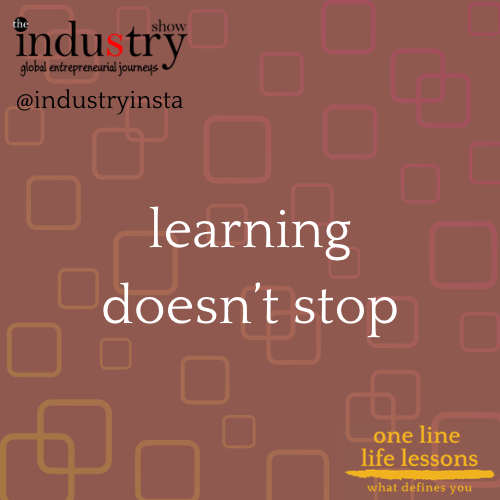
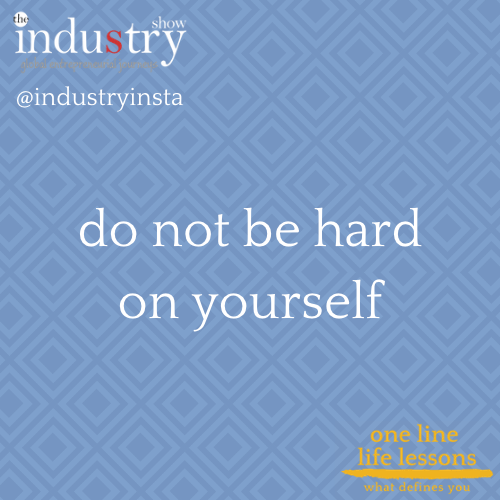
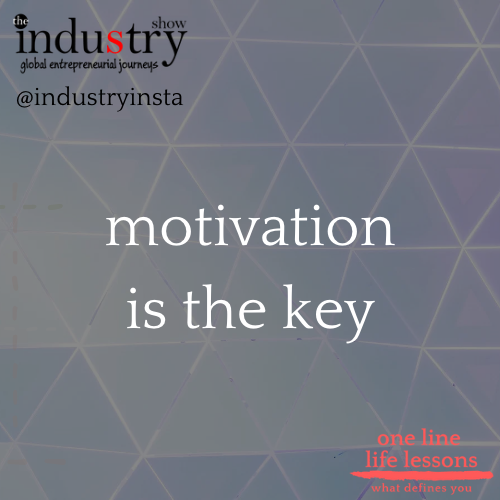
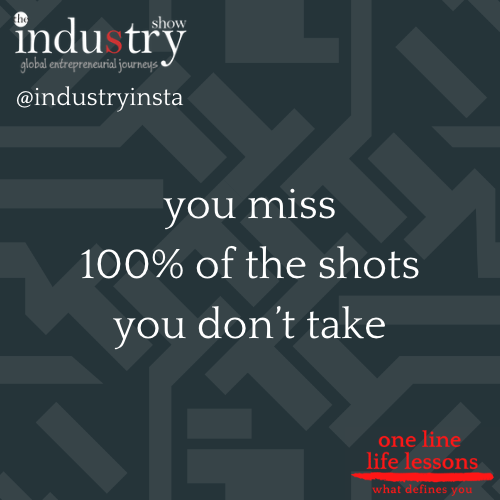
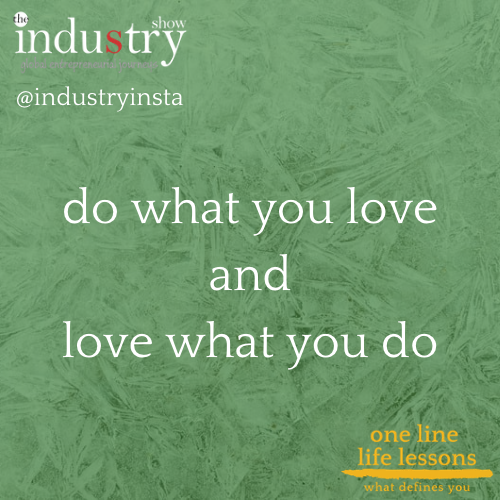
Episode Highlights
- (0:00:00) – Nitin Bajaj welcomes Anuj Kejriwal to the show
- (0:00:14) – Anuj is the youngest of three siblings from Maharashtra
- (0:00:55) – You left Deloitte to go back with your family to start four businesses
- (0:03:34) – You’re developing a screenwriting platform in India that could have huge impact
- (0:05:56) – As you’re going through this journey, what’s the one big challenge you’re facing
- (0:09:19) – Let’s talk about opportunities. What’s the one most exciting opportunity that excites you
- (0:10:59) – Something that blows your expectations and becomes a success can also be a lesson
- (0:13:53) – One line life lessons are very important to living everyday life
- (0:15:29) – Anuj Sharma says motivation is the key to success in any endeavor
Show Transcript
Transcript - Full Episode
Nitin Bajaj: (0:00:00) – Hey everyone, welcome to the industry show. I’m your host, Nitin Bajaj. And joining me today is Anuj Kejriwal. Anuj, welcome on the show.
Anuj Kejriwal: (0:00:10) – Thanks, Nitin, lovely to be here. Thank you so much.
Nitin Bajaj: (0:00:13) – Great to have you here. Let’s start with the big question. Who is Anuj?
Anuj Kejriwal: (0:00:19) – So I’m the youngest of three siblings, born and brought up in Mumbai, Maharashtra. And I went to London for my undergraduate studies at the London School of Economics and then after graduation, worked there for about a year. And now I plan on bringing all that great stuff I’ve learned back to India.
Nitin Bajaj: (0:00:44) – Awesome. You said youngest, but you didn’t say youngest. And the best.
Anuj Kejriwal: (0:00:50) – Definitely not the best.
Nitin Bajaj: (0:00:53) – That’s too humble of you. Let’s talk about what do you do for a living? Now that you’ve come back with all that experience and expertise, what do you do with it?
Anuj Kejriwal: (0:01:03) – So I felt like in London, I was at a point in my life where I wanted to explore. So what we’re doing right now is running about four businesses separately in very varying but interlinked industries, and kind of sowing the seeds and trying to see what’s going to excite us. So we’ve got everything from an events business to a digital platform for screenwriters, a bed linen brand, a jewelry business, a film business. So the idea is more about trying to figure out what’s going to take up the next five years of my life and also what I want to invest most of my thought into.
Nitin Bajaj: (0:01:50) – It’s a very exciting landscape. But I’m still going to ask you this dumb question. Why leave what you have in London? You’re having fun studying, experimenting. Why come back and do this?
Anuj Kejriwal: (0:02:08) – So it’s actually a very interesting reason. It’s because I could with a big safety net. So the idea was that when I was at my company, I was at Deloitte and I was having the time of my life. They’re an absolutely brilliant firm to work for in the, you know, my team was, uh, I was getting a lot of experience and everything, but I did feel like I was at a point where I wanted to know what it was to drive a business. And so I had a very candid conversation with my partner, my managing partner, and I told him that there’s this idea that I have that I want to go back with my family and explore a few different business ideas. And he told me, know, most colleagues leave us for the likes of McKinsey, Bain, BCT, whatever, and trying to make the jump, but you’re here before even leaving. You’re talking me through the idea that you want to work with your family, which I think is absolutely brilliant. And we’re always happy for people to leave us to start something on their own. So he said, go try it out, and God forbid it doesn’t work out. You can always come back anytime. And that kind of just sealed the deal for me because they gave me the best of both worlds. And, yeah, it was too big a privilege to not employ it.
Nitin Bajaj: (0:03:30) – And that’s a great place to be in. So you’re in this journey. It’s a little in the earlier stages, but talk us through the size and scale and more importantly, the impact of the work you’re doing.
Anuj Kejriwal: (0:03:48) – I think the biggest thing to start with would be the screenwriting platform. Bollywood is a massive industry in India. And I don’t have the exact numbers in terms of size and scale, but the fact is that it is a very nepotistic industry and it’s got a lot of barriers to entry. And there are tier two, tier three cities in India that have such absolutely amazing stories, brilliant writers and everything, great talent. But it’s very difficult for them to kind of come and break through these barriers to get their story made into a feature film. And what we’re trying to do is kind of democratize that aspect and bring all kinds of writers from all, even regional languages in front of all the producers in India, but to do it in a fully protected manner. So the biggest thing that we’ve been able to do is figure out how anyone with just rs500, the equivalent of about $7, is able to copyright their story through our platform in a fully automated way and basically protect their idea. And even if they don’t sell it through our platform, they can at least get the protection. And that’s a big thing in this industry because it is currently rampant with lawsuits and a lot of writers that have gotten messed up by people stealing their stories. So I think that’s, in terms of impact, I believe that that’s going to have the largest impact. It’s a fully not for profit platform. And yeah, we’ve raised funding for it as well. So, yeah, I think that’s the one out cues to answer this question.
Nitin Bajaj: (0:05:38) – That is huge. Bollywood being the biggest in the world, and then so many scripts come through. I don’t even know what the acceptance ratio is, but I would imagine it’s less than 1%.
Anuj Kejriwal: (0:05:51) – Oh, easily massive numbers. Yeah.
Nitin Bajaj: (0:05:56) – So as you’re going through this journey, as you’re exploring all of these different options, what’s the one big challenge you’re facing.
Anuj Kejriwal: (0:06:07) – I think one of the biggest challenges I face is imposter syndrome. Every time I think about the fact that, okay, I am running three businesses and assisting on the fourth, I get excited, and I really like that I’m able to do that for myself. But then I also think about the fact that I’m only 23 years old and am I taking enough advice from the people around me to use their learnings and experiences? And currently, I’m not as much as I should be. And I think that’s the biggest challenge, is kind of staying true to myself, but also recognizing that there’s a lot of talent around me that I need to learn from and use. But it’s tough. I don’t know how.
Nitin Bajaj: (0:07:03) – Yeah, no, go ahead.
Anuj Kejriwal: (0:07:07) – Because it’s also the fact that not everyone understands what it’s like to be kind of always short on time because you’re across different things, and then that in itself is also a challenge that do I dedicate myself to one thing to really build it, or do I keep. I can’t keep exploring three or four different spaces forever, so it’s always this middle spot that I’m in. But it’s only been eight months, nine months since I’ve been back, so I’m not questioning it too much yet.
Nitin Bajaj: (0:07:40) – And that’s what I was going to say. That in the time that we’ve gotten to know each other, you’ve come across as one very curious, very experimentive, and very open to ideas and course, needless to say, you’re very humble, down to earth, and open to feedback, which I think is the right attitude and combination for anyone that is going into these things with the right mindset. So you have good shoulders and something on there that is really strong. So I don’t think you should question yourself.
Anuj Kejriwal: (0:08:19) – That’s very sweet of you to say, but I think all of that comes from the fact, I mean, it’s honestly a big privilege to have all of that. And it comes from the fact that I do have multiple different safety nets. We do have a family business that can support experimenting and running with all these different ideas. We have raised funding in two of the businesses. So there are these safety nets that when you. There are people out there that are risking putting food on the table every day. And, of course, they have to be a little more, let’s say, non experimental or straightforward in their approach. So I take this as a big privilege that I have to be able to experiment and just keep trying different things.
Nitin Bajaj: (0:09:10) – And I think the fact that you’re mindful of that, you are not letting that get ahead of you. And that’s really important. So talking about privilege, let’s talk about opportunities. What’s the one most exciting opportunity that excites you and gets you all energized?
Anuj Kejriwal: (0:09:36) – Okay, I’m going to split the question.
Nitin Bajaj: (0:09:38) – Sure.
Anuj Kejriwal: (0:09:38) – I think the greatest opportunity.
Nitin Bajaj: (0:09:43) – For me.
Anuj Kejriwal: (0:09:43) – Right now, which I’m super excited about, is because we’ve gotten over the big kind of step of raising funding we’re about to launch. And especially with the screenwriting platform, is the opportunity for partnerships because there are so many people trying to do different things in the space. The India writing project, the story Inc. A lot of people that have different things going on and I can’t wait to start meeting them and this thing. But that kind of brings me to the point of what excites me most and why I chose to come back to India is because in India there’s this hunger and drive to really take yourself to the next level. For a lot of people, it’s driven monetarily, which is not a bad thing at all. And for a lot of people, it’s just about recognition. And to be very honest, I didn’t see that kind of hunger and drive in the UK. And that’s what excites me most. Every person I meet is so enthusiastic and I mean, hard work, right. I think hard work is the biggest foundation that comes out of India. And yeah, that’s what excites me the most about being here.
Nitin Bajaj: (0:10:58) – That’s awesome. Now, let’s look back a little bit in the rear view mirror and talk about two distinct experiences. One that blew your own expectations and became a success beyond your imagination. And on the other end, something that did not work out as you had expected and was a failure, but also became a lesson.
Anuj Kejriwal: (0:11:24) – So I think in terms of blowing my expectations, and it’s not one incident. It was a period of my life, which was in my final year of university when the year before for summer internships, I’d made 50 applications and gotten one. And after that, when I was applying for jobs, I told myself that I’m not going to go through that again. And I just applied for five jobs. And that’s when I got the job at Deloitte. And even then I was contemplating whether to go through with it or not. But that probably was the best experience of my life in so many different ways. And it really allowed me to get my life back on track because university, you kind of get really lax by the end of it and blah, blah. And basically, Deloitte really allowed me to become focused again and explore so many different things. And that was a period of my life which I think was, which led to where I am today. And the most exciting, the greatest achievement, I’d say, that I was able to do for myself. And I think in terms of, let’s say, failure, it’s pretty much every day there’s a lot of different things that I feel like could have gone better. But one standout failure was actually quite recent, which was a situation wherein someone with more experience about how India works was able to kind of take advantage of me. And I pretty much made a fool of myself in that situation. And that really hurt me, because more often than not, when I make mistakes, I’m happy to make those mistakes. But this particular one just made me angry at myself, which is the worst kind of anger to have. And it kind of knocked me down for about two days. I was constantly in that mindset that, how could I let this happen and stuff like that? And it took me a whole two days to snap out of it. But I think it was a big learning, not just in terms of how to avoid the situation again, but to not be so hard on myself for that one big mistake.
Nitin Bajaj: (0:13:49) – Good lesson learned. Talking about lessons, let’s segue into my favorite part of the show, which is the one line life lessons. Would love to hear a few from you.
Anuj Kejriwal: (0:14:03) – So I don’t have many. I have one, which is a cliche that my dad always used, and I kind of picked it up from him, which is do what you love and love what you do. I think it’s just a very simple sentiment that is very important to living everyday life. There are people that get super stressed out about their job and trying to, I don’t know, working late, ridiculous hours and stuff like that. I think when you love what you do and do what you love, you don’t get stressed about it, and you can work how much ever you want and it won’t really feel like you’re working ridiculous hours. So that’s one thing that I really love. And the second would be, you miss 100% of the shots you don’t take. That’s something that one of my friends told me back in high school, which was about a girl. But that same thing has translated to so many different things in life, and I live by that. You’d miss 100% of the shots you don’t take. Those are the two one liners that I think will stay with me forever.
Nitin Bajaj: (0:15:15) – Same here. I live by those. And again, it’s funny how these things come to us, but they manifest themselves over time and they grow with us.
Anuj Kejriwal: (0:15:29) – In fact, I would like to ask you, why don’t you tell me one of the other one liners that you live by?
Nitin Bajaj: (0:15:36) – So my favorite one is do or do not. There is no try. This is from Yoda. And again, it came to me, of course, through the movie, but it took me a while to really understand what it meant when I was facing my own challenges. It’s like whenever I’ve said I’m trying something, I’m really trying to find an excuse to not do it. And the things that I’m really going after and now more and more so I just do them. I think as you go beyond a certain age, you realize time is of essence and that’s the one thing you do not control. And there’s another one liner that says something along the lines of, if you don’t have time to do it right the first time around, you’re not going to have time to do it again or better the next time around.
Anuj Kejriwal: (0:16:44) – I live by that second one. I think the underlying thing there is motivation, because if you’re motivated to do something well, you will find the time to do it right. And just as a side note, motivation is kind of the one thing that’s really driven a lot of my understanding of people, because even in our hiring practices, even when I’m kind of trying to understand how someone is working towards their vision, for me, it’s all about motivation. If someone is motivated, that’s the only thing you need to be successful, in my opinion. And, yeah, because your hard work, your knowledge, your ability to build that knowledge all comes from whether you’re truly wanting to do it.
Nitin Bajaj: (0:17:39) – True. One thing I learned along my career as I hired people to work with me, for me was you don’t want to hire people for their existing skills. You want to hire them for their ability and motivation to learn things. And you’re always going to come out ahead if you’re looking in the future, not looking at the present or the past.
Anuj Kejriwal: (0:18:08) – I think that reminds me of one of the absolutely amazing aspects of working at Deloitte in London is that I had a manager who was 35 years old and still using her time off projects on the bench to get certified. So she got a scrum certification and she was then working towards other agile methodology certifications. And I was just like, that to me is amazing because, and there was also a partner who was doing this at the same time, and I was know you’re a partner at Deloitte in London, you’re successful in life, you’re done. You don’t have to do anything else. You can just relax and live life. But doing certification at that age is absolutely. It’s another form of humility is to say, okay, I still need to learn. The learning doesn’t stop. And I found that absolutely amazing.
Nitin Bajaj: (0:19:07) – Yeah, I love that spirit of being a student for life. That’s beautiful.
Anuj Kejriwal: (0:19:16) – Agreed.
Nitin Bajaj: (0:19:18) – Anuj, thanks again for making the time and sharing your journey and story. I hope you keep exploring and keep succeeding at all the projects and all the initiatives you’ve taken on. Would love to have you back on and talk about more of your stories and things you have explored. Wonderful to have you here.
Anuj Kejriwal: (0:19:43) – Thank you so much. Thank you so much for the honor. It was so absolutely lovely to be on, and I would love to come back anytime. Absolutely. Love all conversations with you.
Nitin Bajaj: (0:19:55) – Pleasure is mine, and we’ll take you up on that pretty soon.
Anuj Kejriwal: (0:19:59) – All right, thank you.



